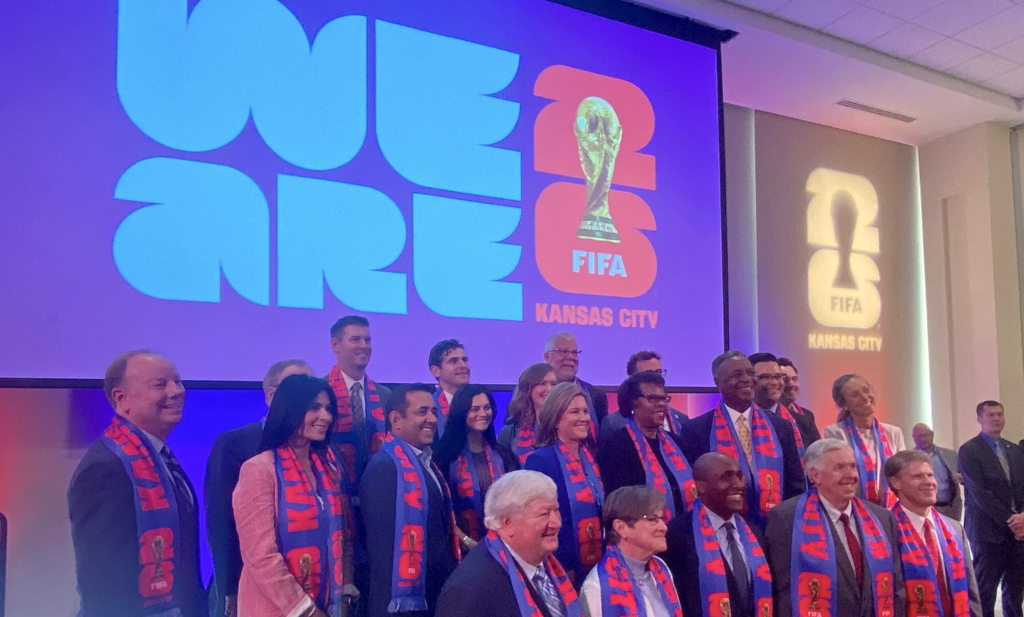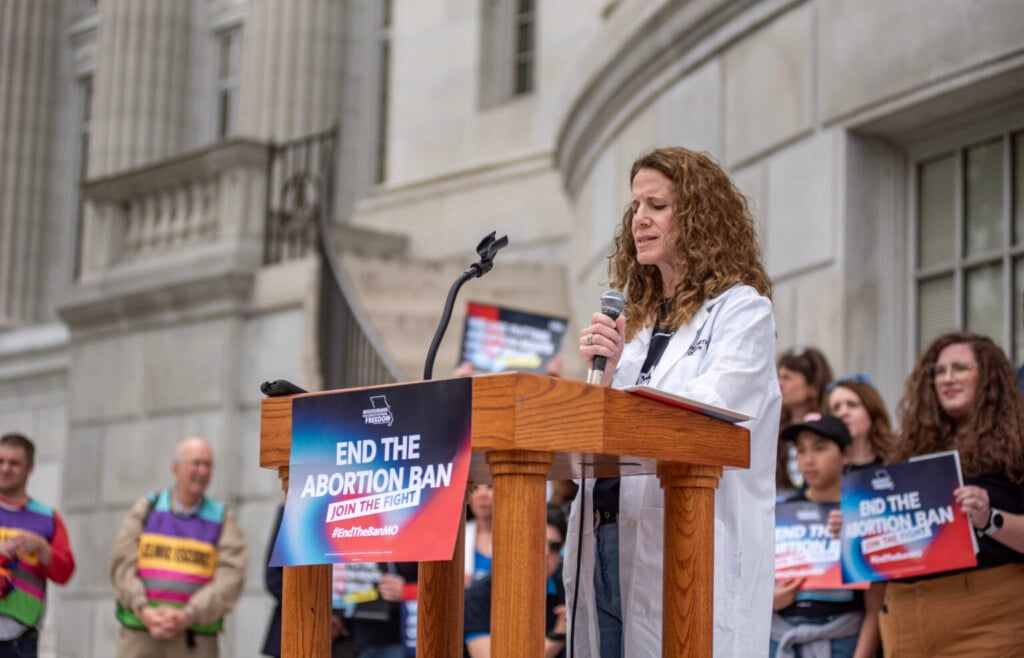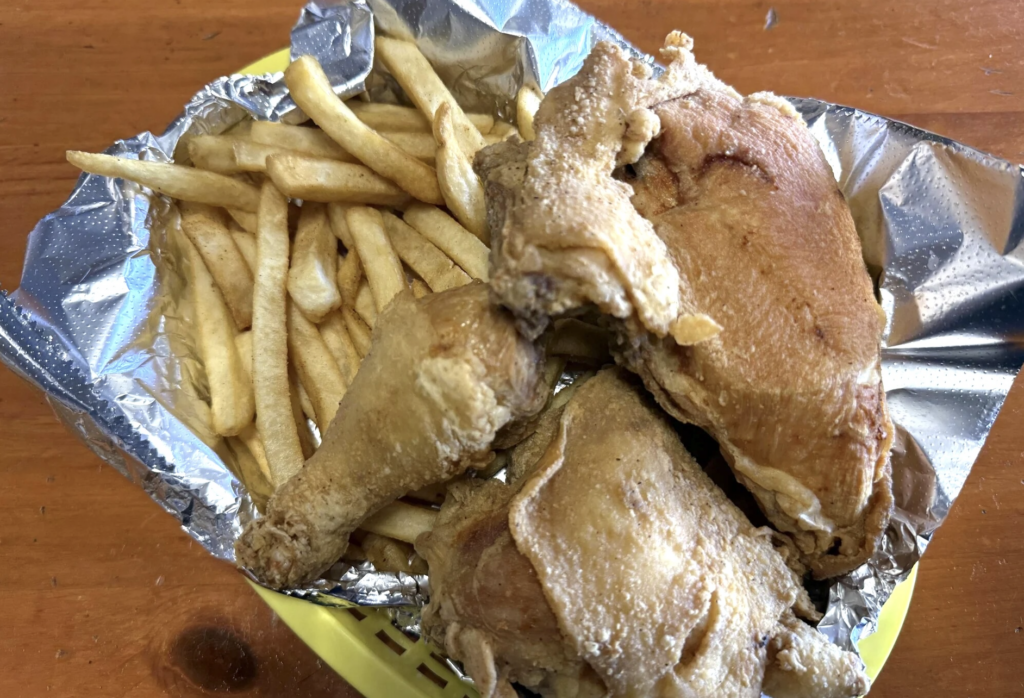The e-Candidate

“I hate Republicans!” a young woman screamed out the window of a sedan as she turned left onto 12th Street from Broadway. The targets of her vitriol seemed indifferent; they shifted their focus to the next car approaching the traffic light.
“Don’t listen to George Stephanopoulos! Vote for freedom! Vote for Ron Paul!” yelled one member of the sign-waving pack.
Stephanopoulos, the host of ABC’s Sunday-morning This Week and that night’s speaker at the Folly Theater, a few blocks away, had argued on his show that Paul had no chance of being elected the next president of the United States.
Like adolescent boys spewing stats on their favorite basketball players, the citizens on the corner hyped the credentials of their long-shot presidential hopeful, a 10-term Republican congressman from the Texas Gulf Coast. Aside from those dozen or so ralliers on October 30, Paul has a legion of followers on the Internet — more than 72,000 volunteers from nearly 1,300 local MeetUp.com groups, far more than any other candidate. On November 5, Paul’s supporters donated more than $4.2 million, making it the largest single fundraising day in presidential campaign history. Paul is a Navy veteran, a licensed obstetrician and gynecologist and an amateur economist devoted to abolishing the IRS and returning the country’s monetary policy to the gold standard. He’s anti-war, anti-big business and anti-federal government. He was opposed to giving Rosa Parks (along with everyone else ever nominated) the Congressional Medal of Freedom, arguing that Congress has no constitutional authority to bestow such an award upon anyone.
Nationally, his followers range from left-leaning college students to neocons who supported Bush in ’04.
One of the main local organizers is Deb Wells, who worked at Sprint for 14 years and was a vice president of North American operations at Archos, a consumer electronics company; she’s done legal research on a contract basis for the past two years. She says she’s seen firsthand how the corporate structure at a company like Sprint can cause a climate of confusion, alienation and distrust among employees who are simply looking for a reliable pension. “He won’t take any contributions from corporations like that,” Wells says of Paul. “That says to me that he is a genuine upstanding citizen who is for people.”
Other group members echo Wells’ sentiments about the growing discontent of America’s workforce. Many say that cities would benefit from Paul’s plan to abolish the federal income tax and banking systems. “Employees of the Federal Reserve branch, the IRS and H&R Block will lose their parasitic jobs and need to find productive work, but there will be plenty of jobs available when we are free again,” says Michael Kerner, 60, an engineer at Honeywell and a district coordinator of the Kansas Libertarian Party.
Others speak of their persistent frustrations with the two major political parties. “I don’t want to live in an empire, nor in a welfare state forcibly redistributing wealth,” says 49-year-old IT worker John Weir.
Linda Powell, meanwhile, is worried about the ongoing development of Kansas City SmartPort, an inland customs facility in the West Bottoms where American and Mexican officials would inspect U.S.-made exports. She fears this may evolve into foreign-controlled inspection of imported goods coming into America through Kansas City. “If we lose our borders and sovereignty, every other issue is moot,” she says.
But when interests are so varied, issues can collide.
At a November 2 fundraiser, the Kansas City group, in collaboration with the Jackson County group, sold $22 tickets for a night of Ron Paul videos, speakers and entertainment by a handful of pro-Paul bands. Around 70 supporters, some familiar with the cause and others new to it, attended the event at the Uptown Theater. Missouri State Rep. Jim Guest of King City said a few words about the cause, then organizers introduced Dave VonKleist, host of The Power Hour, a radio talk show broadcast from Versailles, Missouri, and heard locally on KCXL 1140.
[page]
Armed with his acoustic guitar, VonKleist lamented the “inside the cage” thinking of the “American sheeple” before breaking into a song about protecting the Constitution. Afterward, he asked the crowd to name the symbol of Halloween: the jack-o’-lantern.
“Long before Christianity came along, they worshipped pagan gods,” he said. “And at the end of the harvest, to thank the gods, they would get a gourd … and they would carve it out and put a face of the god in there. Then they had to have something in there to burn. So what they would do is they would sacrifice a baby — that’s right, a little baby. They would kill the baby, and then they would cut all the fat off the baby and put it in the pumpkin and light it on fire. So the next time you see someone with a jack-o’-lantern, thank them for burning a baby in effigy … I just thought I’d share that sick little piece of trivia,” he said.
(VonKleist’s grisly tale refers to disproved Roman stories about Druid sacrificial rituals.)
A preadolescent girl near the front stared at VonKleist, her jaw dropped in bewilderment. VonKleist went on to perform two more songs, one about airplane contrails — or “chemtrails,” as the conspiracy theory goes, that the government drops from the vapor trails of airplanes onto the population, allowing tiny, crablike machines to invade the human body.
Some people walked out.
In the days that followed, group members began an e-mail debate regarding ways to handle diverse viewpoints, especially when such discussions might alienate newcomers.
Those e-mails started their own controversy. By mid-November, the bickering among aggressive e-mailers and those overwhelmed by dozens of messages seemed to undermine of the group.
Wells says participation in group activities has since trailed off; she cites the holidays as the reason.
Meanwhile, the main Kansas City Ron Paul MeetUp group recently split into separate Western Missouri and Eastern Kansas factions to prepare for the February 5 Missouri primary and the February 9 Kansas caucus.
In late November, just before the split, around 30 members attended a grass-roots training session at a Johnson County library. When Wells said the group would focus on swaying registered Republicans, others argued that Democrats should be targeted as well. Wells and others experienced in campaigning quelled these detractors, explaining that the Republican primaries were the first priority and that Democrats would have to wait until Paul won the nomination.
“I knew it would be hard dealing with people,” a visibly tired Wells told The Pitch between training videos. “Some days, I wish it really wasn’t so hard. But that’s the way it is when you’ve got a team of people you’re with.”
Like many of her fellows, Wells isn’t discouraged by the fact that Paul’s chances of being nominated are slim. The tiny glimmer of a chance might feed the drive for something they think will refresh their country.
“People are at a point right now where they need to get a lot off of their chest,” she says, “to get to the real root of what needs to be done.”




